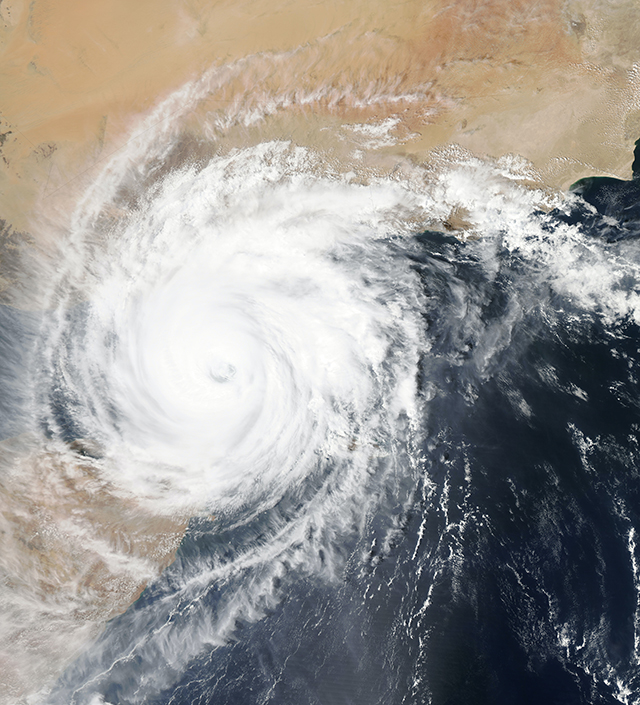A new study shows U.S. hospitalizations, especially for COPD, among people 65 and older increase in the week after hurricanes and other tropical cyclones.
Columbia University Mailman School of Public Health, Columbia University’s Earth Institute, Colorado State University and Harvard T. H. Chan School of Public Health did the study. Researchers used data over 16 years (1999-2014) on 70 million Medicare hospitalizations and a database of county-level local winds associated with tropical cyclones, which include hurricanes and other intense rotating storms formed in the tropics.
The researchers considered tropical cyclone exposure to have occurred on days when there were gale-force winds (those at a strength of at least 34 knots). In total, there were 2,547 tropical cyclone exposure days in 898 counties during the 16 years.
The researchers examined how high-wind exposures from these storms affected hospitalizations from 13 major causes and more than 100 sub-causes. The study is the first comprehensive investigation of the impact of hurricanes and other tropical cyclones on hospitalizations.
Over 16,000 additional U.S. hospitalizations were associated with tropical cyclones over a ten-year average exposure, the researchers said.
In the week following exposure to a tropical cyclone, the study found, respiratory diseases rose an average of 14%, infectious and parasitic diseases were up 4%, and injuries jumped 9%. Hospitalizations from chronic obstructive pulmonary disease (COPD) surged 45% the week following a storm compared with weeks with no such weather events. The day after storms with hurricane-force winds, respiratory disease hospitalizations doubled.
Emergency hospitalizations were primarily responsible for the rise in hospital stays. The researchers pointed out that there may have been cases where exposure to the storms prevented normal medical care, compelling people to go to the hospital to access services that they might otherwise get outside a hospital setting. For example, if people with respiratory issues experienced a loss of power — often a result from hurricane winds — they may have gone to the hospital if they needed power for medical equipment.
For certain health issues, however, such as certain cancers, hospitalizations dropped. These decreases were driven by non-emergency hospitalizations, indicating that people possibly cancelled scheduled procedures because of a storm, the study said.
According to the Environmental Protection Agency, since 1878, about six to seven hurricanes have formed in the North Atlantic every year, and roughly two per year make landfall in the United States. Despite apparent increases in tropical cyclone activity in recent years, changes in observation methods make it difficult to know whether the number of such storms has actually increased. The EPA did note, however, that there has a noticeable increase in storm intensity over the last 20 years.
“We know that hurricanes and other tropical cyclones have devastating effects on society, particularly on the poorest and most vulnerable,” said Robbie M. Parks, Ph.D., Earth Institute post-doctoral fellow at the Columbia Mailman School of Public Health and first author. “But until now, only limited previous studies have calculated their impacts on health outcomes. Current weather trends also indicate that we can expect tropical cyclone exposure to remain a danger to human health and wellbeing, and could cause devastation to many more communities, now and into the future. There is no doubt that extreme weather events, such as tropical cyclones, are a great threat to human health in the U.S.”







